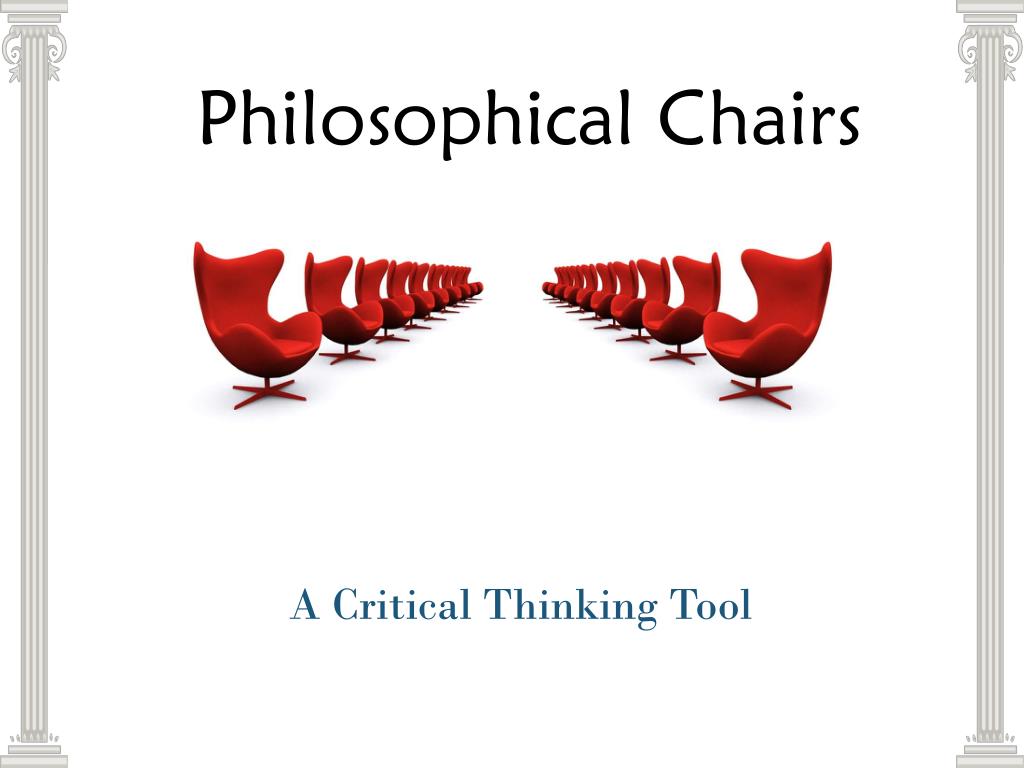Engaging in meaningful discussions is a vital skill that fosters critical thinking, empathy, and open-mindedness. One effective method to encourage such discussions is through a strategy known as “Philosophical Chairs.” In this article, we’ll delve into the world of philosophical chairs and explore the rules that govern this thought-provoking activity.
What Are Philosophical Chairs?
Before we dive into the rules, let’s grasp the essence of philosophical chairs. It’s a classroom or group activity designed to stimulate critical thinking and encourage debate on a particular topic or issue. Participants take a stance on the topic—either agreeing or disagreeing—and engage in a structured discussion.
Preparing for Philosophical Chairs
To ensure a successful philosophical chairs session, it’s essential to set the stage properly. Here are the steps to get started:
1. Select a Thought-Provoking Topic
The first step is to choose a topic that encourages discussion and offers multiple perspectives. It should be relevant to the participants and have no clear-cut answer.
2. Arrange Chairs in a Circle
Create a circle of chairs to facilitate open communication. This seating arrangement encourages participants to engage with one another.
3. Define Clear Rules
Establish the rules of engagement. Participants should know how the discussion will be moderated, how speaking turns will be managed, and the importance of respectful listening.
The Rules of Philosophical Chairs
Now, let’s delve into the specific rules that govern a philosophical chairs discussion
1. Respectful Dialogue
Participants must engage in respectful and courteous dialogue. Disagreement is expected, but personal attacks or disrespectful language are not allowed.
2. Take Turns
To maintain order and ensure everyone has a chance to speak, participants take turns expressing their thoughts. This can be facilitated by a moderator or through a designated speaking order.
3. Evidence-Based Arguments
Encourage participants to support their viewpoints with evidence, facts, or logical reasoning. Emphasize the importance of providing credible sources when applicable.
4. Active Listening
Active listening is crucial. Participants should pay attention to what others are saying and respond thoughtfully. Avoid interrupting when someone else is speaking.
5. Stay on Topic
Keep the discussion focused on the chosen topic. Tangential or unrelated discussions can detract from the main point.
6. Be Open to Change
Participants should remain open to changing their stance based on the arguments presented during the discussion. The goal is not to “win” the debate but to explore and understand different perspectives.
7. Time Management
Set time limits for each speaking turn and for the overall discussion. This ensures that the conversation remains dynamic and doesn’t become too lengthy.

Benefits of Philosophical Chairs
Philosophical Chairs, a structured discussion technique, offers a multitude of benefits that extend beyond the classroom setting. It’s a versatile approach that encourages participants to explore complex topics, engage in critical thinking, and cultivate empathy. In this article, we’ll delve into the advantages of incorporating philosophical chairs into various settings.
1. Enhances Critical Thinking
One of the primary benefits of philosophical chairs is its ability to stimulate critical thinking. Participants are encouraged to analyze issues from multiple angles, evaluate evidence, and construct logical arguments. This process sharpens their ability to think critically, a skill that is invaluable in both academic and real-world scenarios.
2. Encourages Open-Mindedness
Engaging in philosophical chairs discussions exposes participants to diverse viewpoints and perspectives. This exposure fosters open-mindedness and the willingness to consider alternative ideas. It promotes the idea that there may not always be a single “correct” answer and that different perspectives can have merit.
3. Develops Effective Communication
Effective communication is a fundamental skill in any setting. Philosophical chairs require participants to articulate their thoughts clearly and persuasively. Moreover, it emphasizes the importance of active listening, as participants must understand and respond to the arguments presented by others. These communication skills are transferable to various personal and professional contexts.
4. Builds Empathy
Empathy, the ability to understand and share the feelings of others, is a vital component of social intelligence. Philosophical chairs discussions often touch on topics related to ethics, morality, and societal issues. Engaging in empathetic dialogue allows participants to gain insight into the experiences and perspectives of others, fostering greater empathy and compassion.
5. Promotes Respectful Debate
In a world where civil discourse can sometimes be overshadowed by confrontation, philosophical chairs stand out as a platform for respectful debate. The established rules ensure that discussions remain courteous and that participants respect one another’s viewpoints, even when in disagreement. This model of respectful dialogue sets a positive example for constructive conversations.
6. Enhances Problem-Solving Skills
The process of examining complex issues in philosophical chairs discussions translates into improved problem-solving skills. Participants learn to identify underlying problems, weigh potential solutions, and make informed decisions based on evidence and reasoning.
7. Prepares for Decision-Making
In professional and civic life, individuals often encounter situations where they must make decisions that impact others. Philosophical chairs provide practice in decision-making by requiring participants to take a stance, defend it, and potentially revise it based on persuasive arguments. This experience prepares individuals for the complexities of decision-making in real-world scenarios.
Conclusion
Philosophical chairs offer a structured and engaging way to promote constructive discussions on complex issues. By adhering to the rules of respectful dialogue, evidence-based arguments, and active listening, participants can enhance their critical thinking skills and gain a deeper understanding of diverse viewpoints. Whether in a classroom, a community group, or a professional setting, embracing the rules of philosophical chairs can lead to more productive and insightful conversations.



